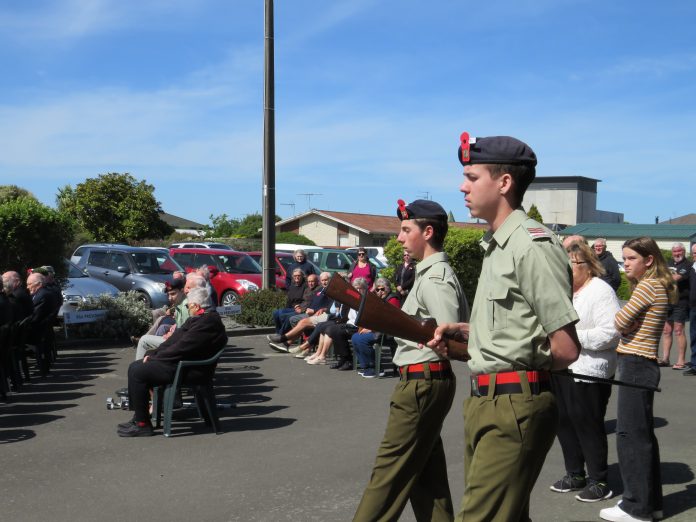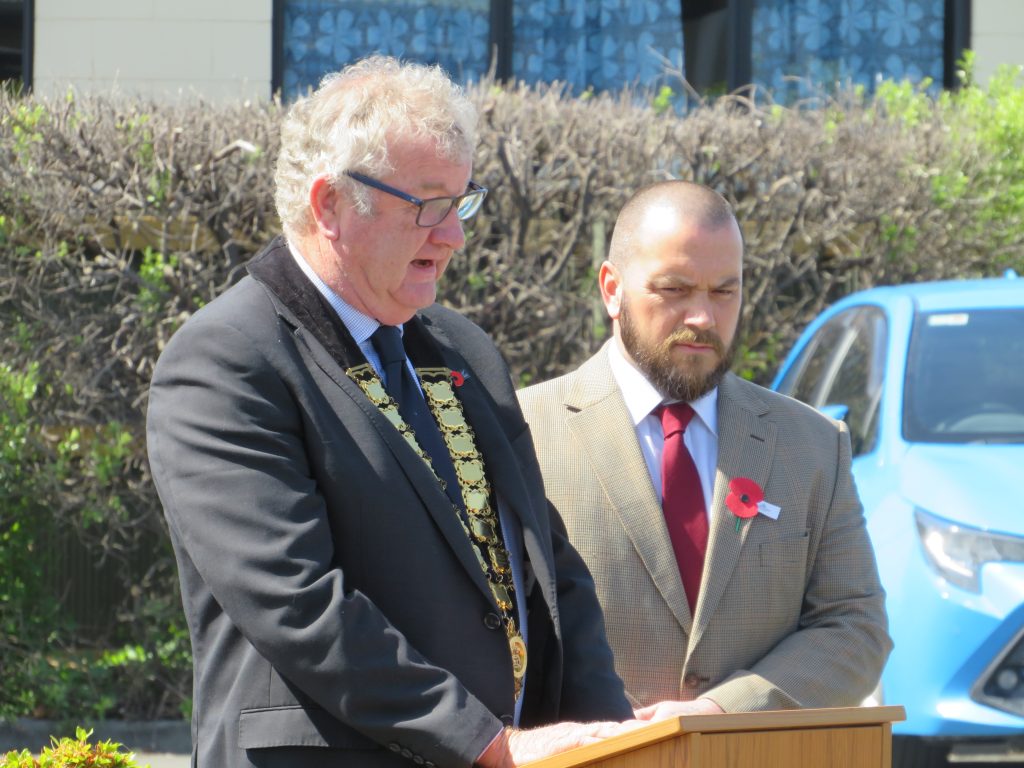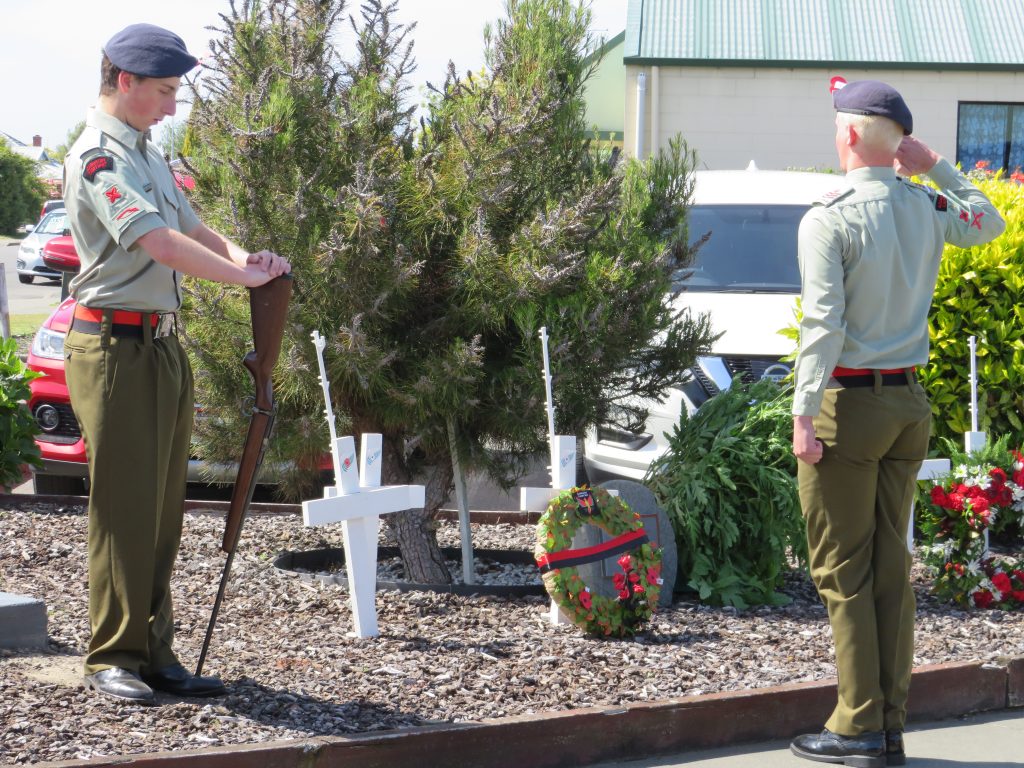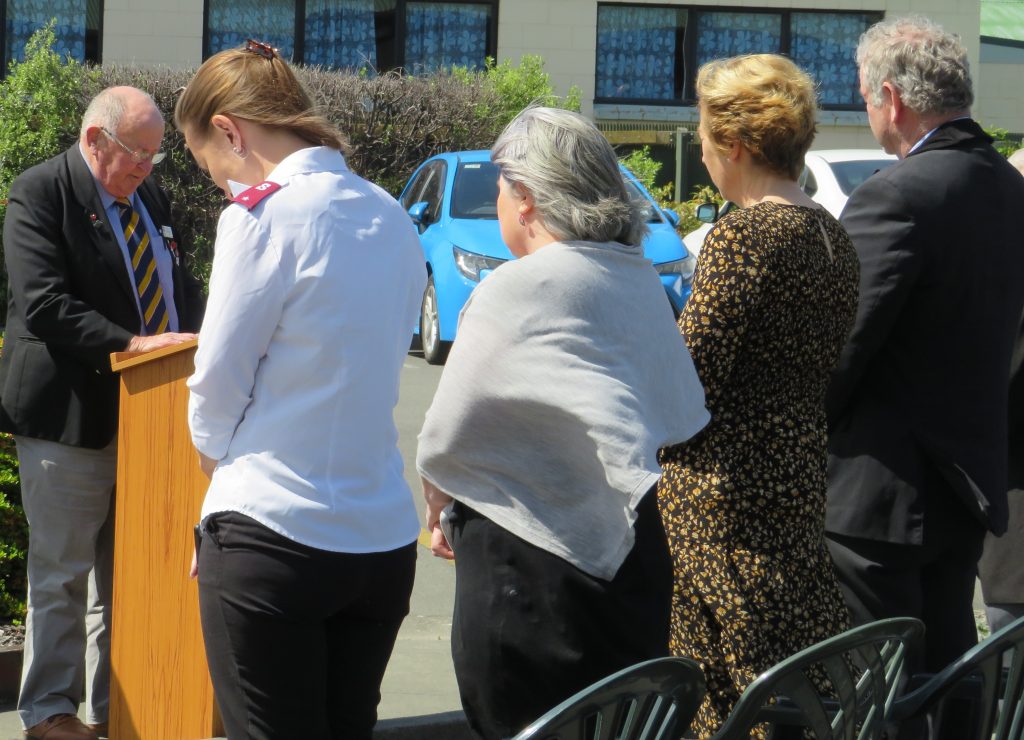
‘‘Armistice Day is an important day for us to remember … the first World War was one of the most significant events of the 20th century and had a deep and lasting impact on society here in New Zealand,’’ Ashburton District mayor Neil Brown says.
Mr Brown was making an address at the Armistice Day service last week in the grounds of the Ashburton RSA, next to the Lone Pine tree grown from Turkish Red Pine seeds sourced from the Gallipoli peninsula.
‘‘It’s a time to contemplate the meaning of peace, with our hindsight that another World War would soon follow and a world where conflict is still all too frequent, acknowledging the horror of war and honouring those who served and those who lost their lives must strengthen our commitment to working together,’’ he said.

Fallen soldiers, families left behind and the late-RSA national patron Queen Elizabeth II were among those remembered during Ashburton’s remembrance, which takes place every year on November 11 at 11am, to remember the end of World War I.
Mr Brown said on the 11th hour, on the 11th day, of the 11th month of 1918 the guns fell silent.
‘‘The armistice came into effect that would finally end the first World War and the world could breathe a sigh of relief. It’s hard in 2022, 104 years later, to imagine how it felt to hear that news.”
Among the Ashburton families changed forever by war were the Sutton’s, Mr Brown said.
Harriet Sutton, a widow, had five sons go to war, but only three returned.
She commemorated her two sons, who were buried overseas, by planting a tree near the rose garden in the Ashburton Domain.
‘‘The carved inscription at its base commemorates all men who fell in World War I and the contributions they made,’’ Mr Brown said.
‘‘It is hard to comprehend these days what it would have been like to send five of your children to an intensive war zone knowing there was a high chance they would not come back.
‘‘Today we commemorate the bravery of the families like the Sutton’s and their enormous contribution to world peace,’’ he said.
‘‘It is heartening that each year more and more people attend Anzac Day ceremonies and others are visiting battlefields in Turkey and Europe. It shows that despite everything that’s happened since 1918 people are still interested in our history and the sacrifices that those had made before us.’’

At the service wreaths were laid by Mr Brown, Ashburton RSA vice-president Allan Johnstone, CMT and Ashburton Cadet Unit.
Robert Aldridge, of the Ashburton RSA, outlined the events of the service, which saw Mr Brown and Ashburton RSA president Merv Brenton address the crowd, bugler Andrew Beckley perform The Last Post, a reading from Ashburton Salvation Army’s Elizabeth Walker-Ratu with members of the Ashburton Cadet Unit on point guard and flag duty.
Mr Brenton, who also read the Ode for the Fallen, said 104 years ago more than one million artillery pieces fell silent and World War I ended.
‘‘It was a time for huge relief, a time to celebrate with the knowledge that loved ones would be returning home for good.’’
More than 100,000 New Zealanders served overseas and around 18,000 were killed.

‘‘We need to reflect on the effects of suffering from the traumas of war, and we need to remember that families can rebuild but there is always that huge void.
‘‘We can’t live in the past – that’s gone – but we can learn from the past and their mistakes.
‘‘To all the men and women who went to war all those years ago, to those that have been involved in recent conflicts, to those that have stayed and kept our country safe for us and defended our place in paradise; thank you so much.
‘‘We will never ever forget you. You will always be remembered.’’



